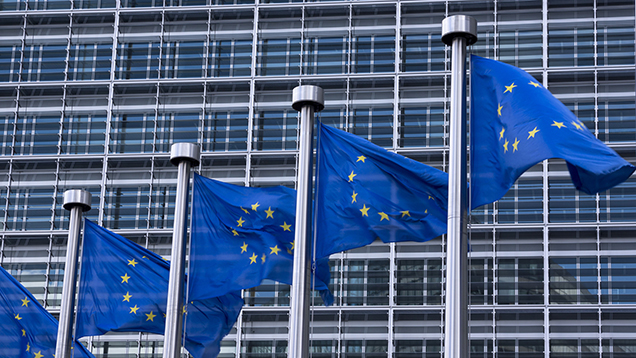Farm ministers in talks over €500m support package
 © WestEnd61/Rex Features
© WestEnd61/Rex Features European farm ministers are in talks to decide how best to allocate a €500m (£365m) support package from Brussels.
The European Commission is expected to provide further informal details of the emergency farm support package for member states on Monday (14 September).
See also: Support package falls short, say farm leaders
These are expected to include details of new private storage schemes for the livestock and dairy sectors – as well as marketing and promotion options.
Details are also expected on the criteria that should be taken into account when calculating the potential allocation of money to each EU country.
Civil servants and officials from member states are discussing the options informally before a full meeting of European farm ministers in Luxembourg on Tuesday (15 September).
The commission announced the support package following an emergency meeting of European ministers in Brussels on 7 September.
The meeting saw 6,000 farmers from across the EU descend on the European capital for a day of action in protest at low food prices.
Strong concerns
Farm ministers have already expressed strong concerns about a range of agricultural sectors, in particular the dairy and pigmeat sectors.
The commission said its response intended to address difficulties in cashflow faced by farmers, stabilise markets and address the functioning of the supply chain.
But farm leaders have described the support package as “far from sufficient”.
The proposals from Brussels included allowing member states pay up to 70% of direct payments to farmers from 16 October – some six weeks earlier than usual.
Partial payments
The UK has repeatedly ruled out making advance partial payments to farmers.
Defra argues that making advance payments would risk complicating the process with the result that farmers would have to wait longer for the rest of their money.
Instead, Defra secretary Liz Truss has called on Brussels to relax rules regarding administrative checks so more farmers can receive their payments promptly from 1 December.
This raises the possibility that farmers in the rest of Europe could receive their direct payments sooner than farmers in England.
The NFU has warned that such a situation would put English farmers at a competitive disadvantage to their European counterparts.
NFU vice-president Guy Smith said it would be wrong for Defra to point the finger of blame at Brussels if farm payments were delayed.
Defra – not the EU – was ultimately responsible for the IT system introduced by the Rural Payments Agency to administer payments to farmers, said Mr Smith.
Mr Smith said he was pleased Ms Truss was exploring all avenues to ensure prompt payments but problems with the computer system had already made delays a very real possibility.
“The secretary of state needs to make sure both the Rural Payments Agency and Natural England have the competence and all the resource necessary to process all claims correctly and quickly.”
